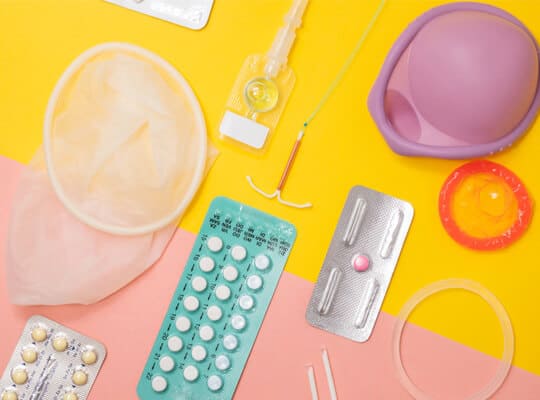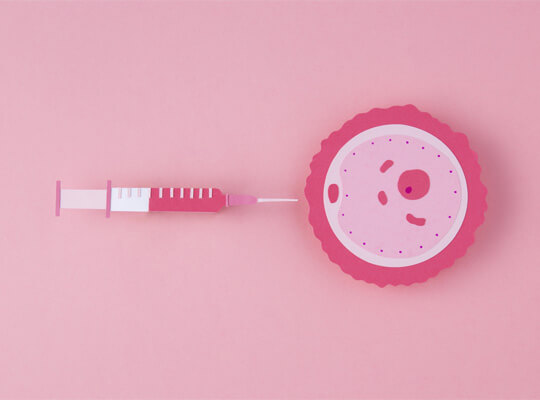5 Steps to Improve Your Fertility Naturally
Table of Contents
5 Steps To Improve Your Fertility Naturally
If you’re trying to have a baby, you probably know the stress that comes with it. You might have heard about the benefits of meditation and other relaxation techniques, but do these really work? Can they really help improve fertility? And what’s the best way to go about practicing them anyway? I’ve put together this step-by-step guide to improve your fertility naturally by addressing some common issues that couples face when trying to conceive. In this article, we’ll cover everything from knowing your ovulation cycle to avoiding heavy metals like mercury and lead in your diet.
Step 1: Know Your Fertility Cycle
- Know Your Fertility Cycle
The first step to improving your fertility is knowing when you’re ovulating, or releasing an egg from one of your ovaries. This occurs about two weeks before the start of your next period and lasts for about 12-24 hours. During this time, there are several signs that can help you identify ovulation:
- You may experience some slight pain on one side (usually the left)
- You might have some light spotting between periods
- Your cervix will become softer and rise higher in the vagina if you’re close to ovulating

Step 2: Cut Out Processed Foods
Processed foods are unhealthy. They’re high in sugar, salt and fat, which can lead to weight gain if you eat too much of them. Processed foods also tend to be packed with artificial ingredients that can have negative effects on your health.
Processed foods may be convenient, but they’re not nutritious–and they won’t help your fertility efforts in any way!

Step 3: Avoid Heavy Metals
Now that you know the basics of your reproductive system and its functions, it’s time to look at some ways you can improve your fertility by taking care of your body.
One of the biggest things you can do is avoid heavy metals like lead, arsenic and mercury. These substances can damage the reproductive system in both men and women by affecting hormone production or causing damage to cells during development. Heavy metals are found in many food sources (like seafood) as well as drinking water–so they’re pretty unavoidable if you live near an industrial area or near a city with old pipes! However, there are ways to remove these toxins from your body through detoxification: a process that helps remove toxins from your body so they don’t accumulate over time and cause problems later on down the line (such as infertility).
Step 4: Get Your Vitamin D Levels Checked
As you may have heard, vitamin D is important for fertility. It’s also known to improve egg quality and sperm count, which means that if your levels are low, it could be contributing to your fertility struggles. The best way to check your Vitamin D levels is through a blood test with your doctor or primary care provider (PCP).
If you’re not getting enough sun exposure and/or aren’t eating enough foods rich in vitamin D–such as salmon, tuna fish and eggs–you might want to consider taking supplements until you can get them up where they should be: between 50-70 ng/ml (nanograms per milliliter) for women who want to get pregnant naturally; between 65-80 ng/ml for those who are considering IVF or other assisted reproductive technologies (ARTs) such as IUI (intrauterine insemination) or IVF with ICSI (intracytoplasmic sperm injection); 70+ ng/ml if trying both natural conception AND ARTs at once; 80+ng/ml if trying both natural conception AND ARTs at once but over 35 years old.
Step 5: Introduce Healthy Stress Management Techniques Into Your Life
Stress is a major factor in fertility problems. When you’re stressed, your body produces more cortisol–a hormone that can decrease fertility and suppress ovulation. Stress management techniques like meditation, yoga and exercise can help reduce stress levels and relax you so that you feel less anxious about getting pregnant.
The most important thing to remember when trying to improve your fertility through stress management is that every woman’s body is different! You may have tried one or two methods of reducing stress only to discover they didn’t work for you at all; don’t give up! Try another method until something sticks!

These steps will help you better understand your body and naturally improve fertility
When you are trying to get pregnant, it’s important to understand the basics of ovulation and fertility. Ovulation is when your body releases an egg from your ovary. The egg travels through fallopian tubes, where it can be fertilized by sperm. If this happens, you will become pregnant!
If you’re not sure whether or not you’re ovulating regularly or if there are other issues with your menstrual cycle that could be affecting your fertility, these five steps will help improve both:
- Understand how long a normal cycle lasts for each woman (this varies).
- Know what’s normal for YOU as an individual by keeping track of things like temperature changes throughout different days of the month; headaches; mood swings; cravings/aversions; pain during sex etc…
- If something feels off–take note! There may be an underlying health issue affecting this particular month’s cycle (or even years worth). It’s best not ignore these warning signals because ignoring them could mean missing out on important information about what could lead back toward better overall health which ultimately leads toward better pregnancy outcomes.
We hope this article has been helpful in understanding how you can naturally improve your fertility. The best thing to do is start by taking a closer look at your diet and lifestyle, then work from there. If you have any questions or concerns about what we discussed in this article, please don’t hesitate to reach out!
For More Information
Please do not hesitate to contact us for more information on the subject.



